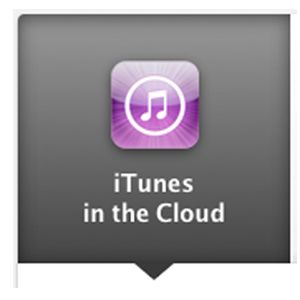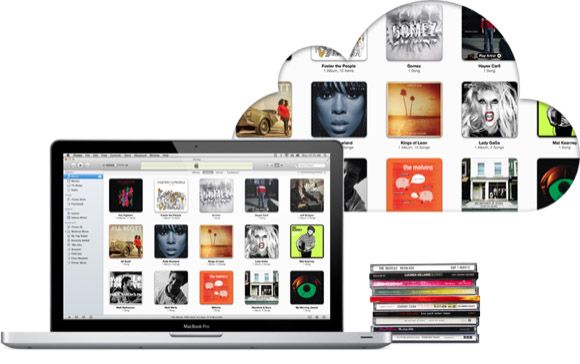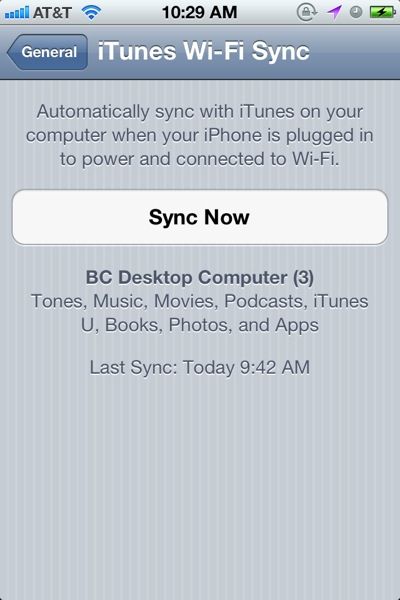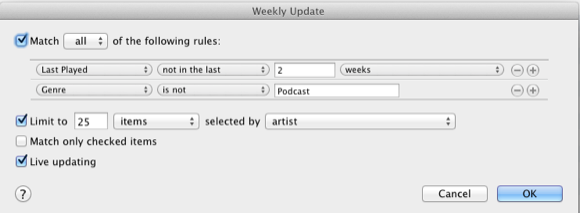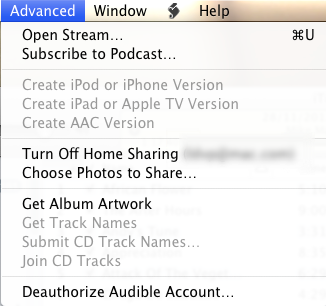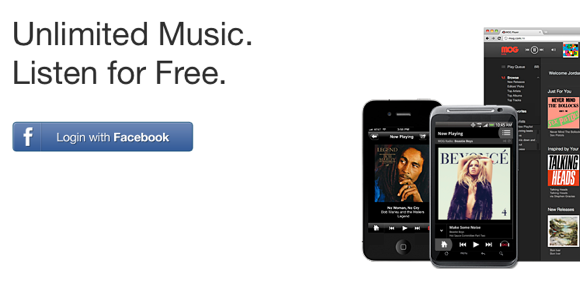With the recent launching of Apple's iCloud and the music streaming service iTunes Match, cloud computing seems to be the future of Apple and other computer companies. If you use multiple Apple devices like I do, you no doubt welcome the recent upgrades for wirelessly syncing data between your computer and iOS devices.
But after subscribing to and exploring iTunes Match, I find the paid service not as useful as Apple's wireless iTunes syncing, its Home Sharing feature, and music streaming service sites like Rdio.com and Spotify.
iTunes Match
iTunes Match is a music streaming service ($24.99 per year) that essentially allows you to sync all the songs (including the ones you purchased in the iTunes Music Store and ones you imported from other sources such as CDs) from your iTunes Music Library to your iCloud account over Wi-Fi or 3G. In turn, you can access your songs in the cloud from any iTunes supported Mac or PC and on your iOS devices.
With iTunes Match, your song files are not physically uploaded to the cloud. Rather, iTunes scans your iTunes Library and matches your song content with the vast catalog of songs in the iTunes Music Store. The matched music is added to your iCloud account. Songs in your library that are not found in the Store don't of course get matched, and thus don't appear in iCloud.
If you're an avid user of iTunes and customer of the iTunes Music Store, iTunes Match may very well be a useful subscription service for you. In addition to having access to your music in the cloud, the paid service backs up your music to cloud; and if your songs are ever deleted on your local drive they can be re-downloaded from your iCloud.
But there are problems with iTunes Match that you might want to consider. First off, though you can stream your music from your iCloud account over Wi-Fi onto your iTunes supporting computer(s), you can't stream music in the same way to your iPhone and other iOS devices. You have to actually select and download those songs from your iCloud account to your device, which means that it will take up memory space in your device. In fact, when you turn on iTunes Match on your device, it replaces the iTune library set up for your device prior to iTunes Match.
Wireless iTunes Syncing
With the release of iOS 5 for the iPhone and other Apple devices, you can now sync data between your device and the iTunes library on your computer over your local network.
With this wireless syncing, you can add and delete songs and playlists in your iTunes library for your devices and sync those changes without having to make a wired connection to your computer. In fact, after the initial setup, your iOS device will automatically sync your iTunes library when you have the device plugged into a charger and connected to your local Wi-Fi network.
You can also manually execute wireless syncing in the Summary page of your iTunes or in the Settings app of your iOS device (General > iTunes Wi-Fi Sync > Sync Now). I prefer this approach over iTunes to managing music on my iPhone. This method allows me to select and deselect songs in my iTunes library instead of having to download them (and manually remove them) individually from my iCloud account.
I even use a Smart Playlist in iTunes that automatically removes songs I've played on my iTunes and/or my iPhone in the last 2 weeks. When songs are dropped off they are automatically replaced with new tracks from my library.
This wireless smart playlist requires no manual downloading on my part and it keeps my iPhone updated with different music from week to week.
Home Sharing Features
iTunes Match may be most useful to iTunes users who travel frequently and want to have access to their music in the cloud. However, for the rest of us, the Home Sharing feature of iTunes (see here for how to set it up) will probably be sufficient for sharing and accessing all the content in your iTunes library with your computers and iOS devices. With iTunes Match, on the other hand, you can only share your songs, not your other content such as downloaded movies and TV shows.
Streaming Music Services
Lastly, I would argue that streaming music services like Spotify, Rdio, and MOG may be a better and much more affordable option for those of us who have a good Wi-Fi connection.
An affordable $5 per month subscription to one of these music streaming services allows you to stream, commercial free, all the songs and albums in their catalog. For $10 per month you can stream music from these sites to your mobile smartphone. These music streaming sites also have free ad-supported options as well. See my article, The Pros and Cons of Streaming Music vs. Downloading MP3s for more about this option.
So what is your view of iTunes Match, iCloud and other streaming music services. Which do you prefer and why?

